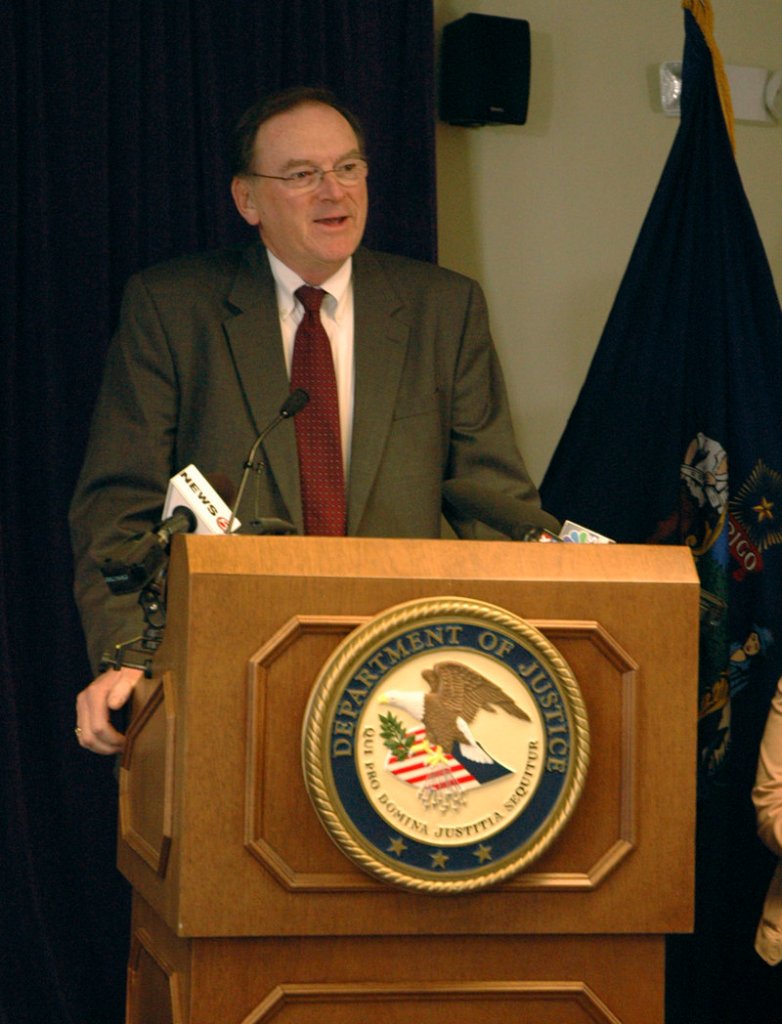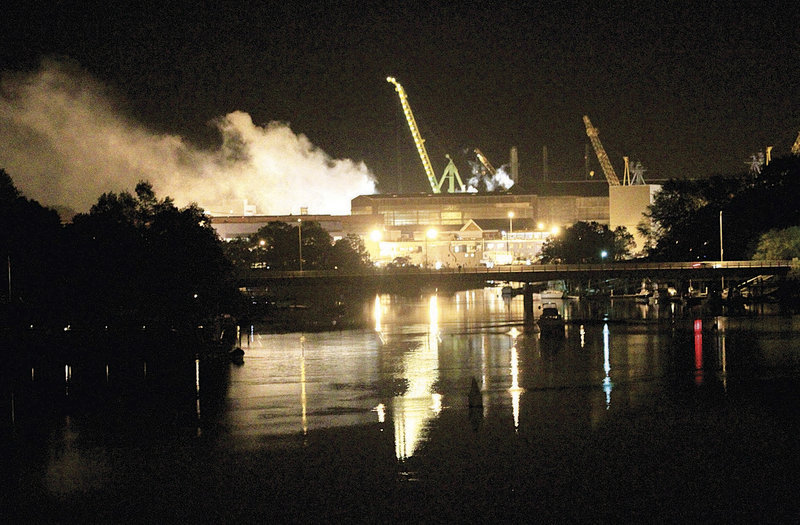PORTLAND — Casey James Fury only wanted to get out early from work at the Portsmouth Naval Shipyard when he set a fire on a nuclear submarine on May 23 and another fire outside the sub on June 16, U.S. Attorney Thomas Delahanty II said Thursday.
For that, Fury faces more than 15 years in federal prison. The 24-year-old man from Portsmouth, N.H., pleaded guilty to two counts of arson in a plea agreement reached Thursday morning in U.S. District Court.
Fury suffered a bout of anxiety before he set the fire on the USS Miami on May 23, hoping to go home early. He told an investigator from the Naval Criminal Investigative Service that he was on Celexa and Klonopin, medications to treat anxiety and depression, according to the criminal complaint filed by the investigator.
He started the second fire after he got anxious “over a text (message) conversation with his girlfriend and wanted to leave work,” according to the complaint filed by Jeremy Gauthier, the assistant special agent in charge of the investigative service’s North Field Office.
The fire on May 23, which burned for about 10 hours, created a “roaring blast furnace” that injured five emergency workers, Delahanty said during a news conference Thursday. He said Fury started the fire on the Navy sub to cause an evacuation.
Fury faced as much as life in prison for starting that fire. He faced as much as 25 years for starting the fire outside the submarine. Under the plea agreement, he faces 188 to 235 months in federal prison.
Fury has been detained since his arrest on July 23.
The USS Miami, a Los Angeles-class attack submarine built in 1990, was in dry dock for an overhaul at the shipyard in Kittery, where Fury worked as a civilian painter and sandblaster.
Delahanty said about 50 people were aboard the submarine at the time of the first fire, which caused about $450 million worth of damage — more than the cost of the overhaul.
In devising sentencing guidelines for Fury, the defense and prosecution stipulated a lesser loss, of $200 million to $400 million, to determine restitution, Delahanty said.
“The number here far exceeds any hope that any reasonable person would be able to make restitution in full or part,” he said.
Delahanty said Fury’s sentencing has not been scheduled but he expects it will be around March 1.
Although Fury and prosecutors agreed on sentencing recommendations, the judge is not obligated to issue a sentence within that range. If the judge hands down a sentence greater than the recommended 188 to 235 months, Fury can withdraw his guilty pleas. If the sentence is less than the recommended amount, prosecutors could withdraw their plea agreement, Delahanty said.
Fury’s previous criminal record included only a charge of operating under the influence, according to one of the prosecutors, Assistant U.S. Attorney Darcie McElwee. Prosecutors considered that in their sentencing recommendation.
McElwee said Fury indicated that he didn’t intend to have the fire get out of control. “He didn’t expect that five people almost died.”
Fury’s federal public defender, David Beneman, reached by phone, declined to comment on the case.
Fury initially denied setting the fires, when questioned by investigators.
After being questioned in July, he admitted to starting the fire outside the submarine, but again denied setting the earlier, much more substantial fire aboard the vessel.
He finally admitted to setting that fire after an investigator confronted him, Gauthier said in his criminal complaint.
Fury started the first fire in the stateroom on the second deck, middle level of the sub by using a lighter to ignite rags. That fire grew so large that fire extinguishers were ineffective. Firefighters could not extinguish it until the next day, Delahanty said.
He said Fury started the second fire by lighting alcohol wipes that he wrapped around some wood under the hull that was being used to hold up the submarine.
Staff Writer Scott Dolan can be contacted at 791-6304 or at:
sdolan@mainetoday.com
Twitter: scottddolan
Send questions/comments to the editors.




